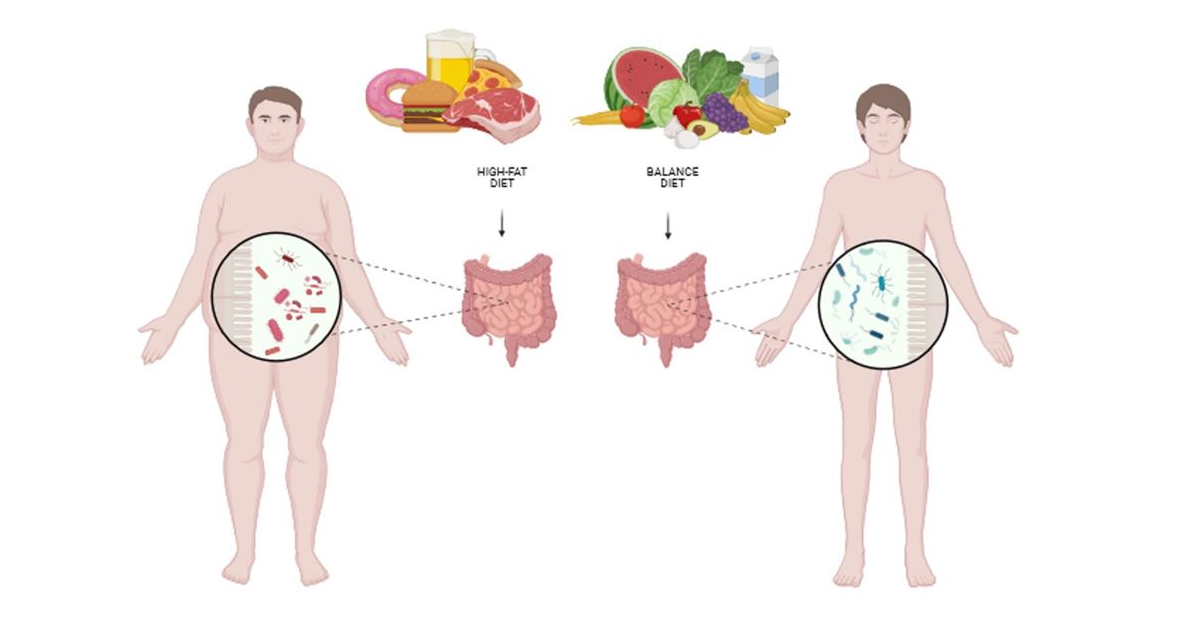Metabolic Syndrome: The Causative Role of High-Fat Diet and the Assistance from Nutrients and Intestinal Microbiota
A special issue of Nutrients (ISSN 2072-6643). This special issue belongs to the section "Nutrition and Metabolism".
Deadline for manuscript submissions: closed (5 April 2024) | Viewed by 1329

Special Issue Editors
Interests: gut microbiota activity; metabolism; in vivo experiments; nutrition; oxidative stress; inflammation
Special Issues, Collections and Topics in MDPI journals
Interests: in vivo experiments; nutrition; oxidative stress; inflammation; obesity; liver disorders; gut-microbiota-derived metabolites; metabolic disorders; interaction between the gut and liver
Special Issues, Collections and Topics in MDPI journals
Special Issue Information
Dear Colleagues,
It is our pleasure to announce the launch of a new Special Issue of the journal Nutrients, entitled “Metabolic Syndrome: The Causative Role of High-Fat Diet and the Assistance from Nutrients and Intestinal Microbiota”.
It is well known that some of the metabolic disorders that occur in developed countries result from well-established, faulty eating habits. People have begun to understand that diets rich in fats, mostly saturated fatty acids and carbohydrates, and low in dietary fibre increase the risk of obesity, type 2 diabetes and cardiovascular diseases and, thus, the occurrence of metabolic syndrome. Most dietary-related disorders are associated with changes in the activity and profile of gut microbiota. These microorganisms have the potential to produce bioactive compounds that may signal to the host by activating cognate receptors in various cells. These molecules activate receptors in the gut, liver and periphery to regulate several host molecular mechanisms, including processes related to metabolic disorders. Therefore, the specific regulation of the activity and/or profile of gut microbiota, combined with specific eating habits, can play a paramount role in the prevention and mitigation of disorders related to metabolic syndrome.
The aim of this Special Issue is to provide new insights into the relations between dietary habits (main and minor nutrients), local microbiota action in the gastrointestinal tract and systemic responses of an organism developing metabolic syndrome through changes in the mechanisms associated with lipid, carbohydrates metabolism, inflammation and antioxidant status.
In this Special Issue, original research and literature reviews concerning the interplay between diets that are rich in fat and associated dietary-mitigating treatments, gut microbiota and metabolic syndrome disorders will be appreciated.
We look forward to receiving your contributions.
Prof. Dr. Jerzy Juśkiewicz
Dr. Bartosz Fotschki
Guest Editors
Manuscript Submission Information
Manuscripts should be submitted online at www.mdpi.com by registering and logging in to this website. Once you are registered, click here to go to the submission form. Manuscripts can be submitted until the deadline. All submissions that pass pre-check are peer-reviewed. Accepted papers will be published continuously in the journal (as soon as accepted) and will be listed together on the special issue website. Research articles, review articles as well as short communications are invited. For planned papers, a title and short abstract (about 100 words) can be sent to the Editorial Office for announcement on this website.
Submitted manuscripts should not have been published previously, nor be under consideration for publication elsewhere (except conference proceedings papers). All manuscripts are thoroughly refereed through a single-blind peer-review process. A guide for authors and other relevant information for submission of manuscripts is available on the Instructions for Authors page. Nutrients is an international peer-reviewed open access semimonthly journal published by MDPI.
Please visit the Instructions for Authors page before submitting a manuscript. The Article Processing Charge (APC) for publication in this open access journal is 2900 CHF (Swiss Francs). Submitted papers should be well formatted and use good English. Authors may use MDPI's English editing service prior to publication or during author revisions.
Keywords
- high-fat diet
- obesity and dietary therapy
- type 2 diabetes
- cardiovascular diseases
- metabolic disorders
- lipid metabolism
- inflammation
- oxidative stress
- blood lipid profile
- gut microbiota
- gut microbial activity
- gut-microbiota-derived metabolites






